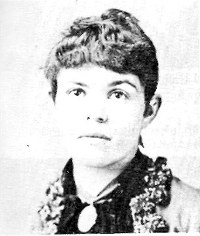The following story has been told, but I have not met with it in its absolute correctness. The Duke of Wellington received a letter, while sitting in the House of Lords, from an eminent landscape designer and great authority on botanical matters, J.C. Loudon. The duke had lost sight of him for some years. It was a note to this effect: ‘My Lord Duke–It would gratify me extremely if you would permit me to visit Strathfieldsaye at any time convenient to your grace, and to inspect the Waterloo beeches. Your grace’s faithful servant, J.C. Loudon.’ The Waterloo beeches were trees that had been planted immediately after the battle of Waterloo, as a memorial of the great fight. The duke read the letter twice, the writing of which was not very clear, and, with his usual promptness and politeness, replied as follows, having read the signature as ‘J.C. London,’ instead of ‘J.C. Loudon.’ ‘My dear Bishop of London–It will always give me great pleasure to see you at Strathfieldsaye. Pray come there whenever it suits your convenience, whether I am at home or not. My servant will receive orders to show you as many pairs of my breeches as you may wish, but why you should wish to inspect those I wore at the battle of Waterloo is quite beyond the comprehension of Yours most truly, Wellington.’ The letter was received, as may be supposed, with great surprise by the Bishop of London. He showed it to the Archbishop of Canterbury and to other discreet persons; they came to the melancholy conclusion that the great Duke of Wellington had evidently lost his senses. The Bishop of London (Blomfield) declared that he had not written to the duke for two years and to receive this extraordinary intimation puzzled the whole bench of bishops. Explanations, however, of a satisfactory kind, followed and the friendship of these worthy men was not changed.
— William Augustus Fraser, quoted in Wit, Wisdom and Foibles of the Great, 1918



